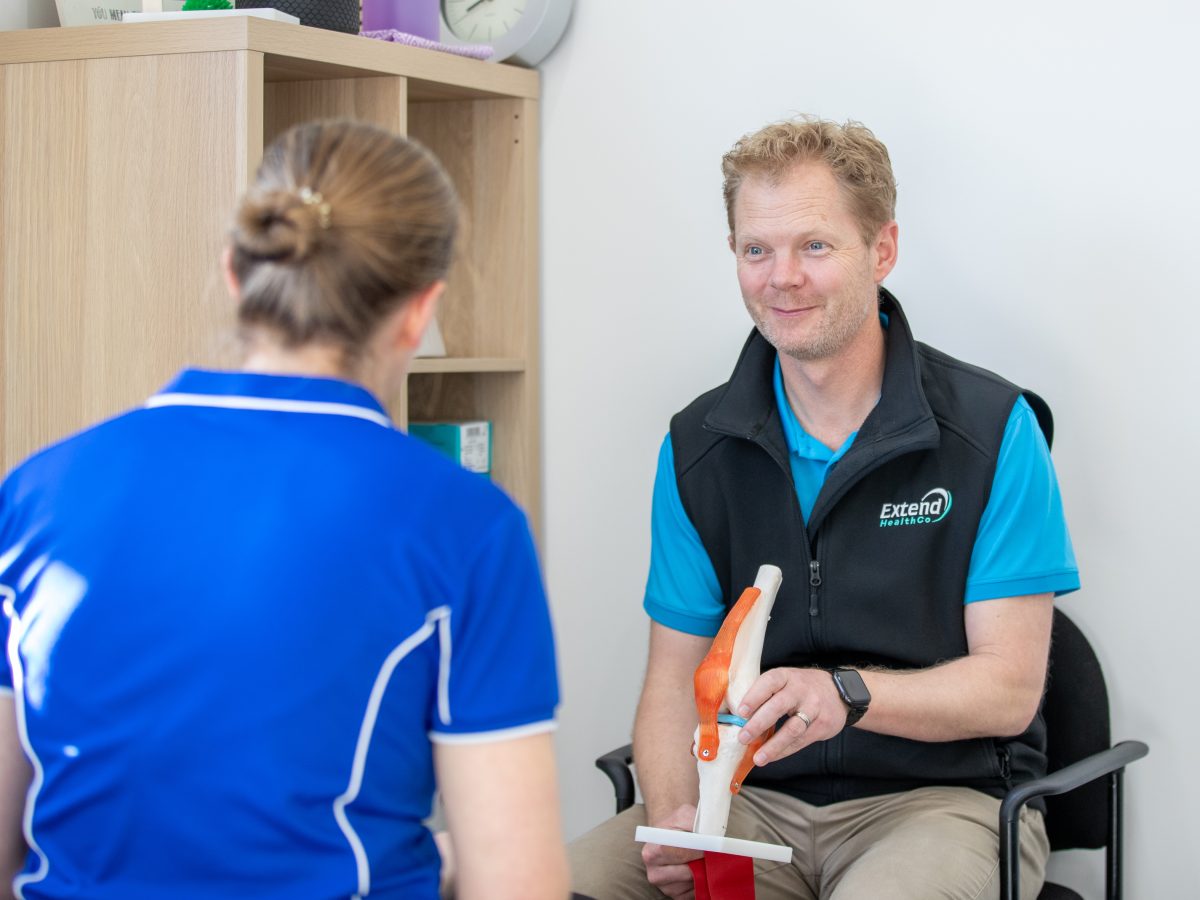Allied health professionals such as exercise physiologist Hannah Kingsland at Extend HealthCo can be a key part of building sustainable, robust and resilient health systems. Photo: Adam Drummond.
As the Riverina, along with the nation, braces for the implications of its aging population, a shortage of allied health workers should be among its top concerns, according to a respected local industry professional.
Extend HealthCo owner Luke Friedlieb said a current lack of qualified allied health staff could have knock-on effects across our health system.
“Allied health workers can play an important role in a person’s quality of life,” he said.
“When you think about what our occupational therapists do – they assess people’s homes to see what modifications can be made so they can stay independent for longer. A dietician looks at what people should eat to avoid serious health problems … Many health issues can be managed with the help of allied health practices, often without surgical interventions.
“Our allied health professionals have valuable contributions to make to the overall health of our population. And if we’re healthier, stronger and avoiding illness and injury, ultimately that helps take the pressure off our hospitals and local GPs – and we need that right now.”
The percentage of older Australians is expected to continue to grow. By 2066, it is projected older people in Australia will make up between 21 and 23 per cent of the total population, according to the Australian Bureau of Statistics.
Mr Friedlieb said this, coupled with more people accessing NDIS and a chronic shortage of GPs in the region, was amounting to major deficits in the sector – and the Riverina was already feeling it greatly.
Increased demand for services at Extend HealthCo is not showing any signs of slowing down, but Mr Friedlieb has struggled to find adequate numbers of qualified allied health professionals since the pandemic.
“We’re fortunate in that our clinic has a physiotherapist, an occupational therapist, an exercise physiologist and a dietitian, but we’d hire more in a heartbeat if we could,” he said.
“Since COVID, skilled allied health workers are hard to find, particularly physiotherapists.
“We’re very conscious about ensuring our staff don’t get burned out, but they are working hard.”

Physiotherapist and Extend HealthCo owner Luke Friedlieb says there is a shortage of qualified allied health professionals to meet growing demand. Photo: Adam Drummond.
A spokesperson from the Murrumbidgee Local Health District (MLHD) said attracting and retaining healthcare staff to rural and regional areas was a long-standing, fundamental problem faced by all state and territory health systems across Australia.
“Recruitment of experienced and skilled staff to strengthen the workforce is an ongoing key priority for the district and these recruitment efforts are continuing through a range of talent-sourcing strategies including social media and advertising campaigns in Australia and abroad,” the spokesperson said.
“MLHD is working on short- and medium-term solutions to boost the workforce capacity, including incentives to attract staff, such as relocation payments, interim accommodation, and education and career pathways.
“There are also financial incentives in place for the attraction and retention of permanent allied health professionals as well as short-term locum positions.”
Mr Friedlieb said there were some obvious solutions to the problem faced by allied health clinics, but none that were reflected in government support.
He pointed to the Federal Government’s Workforce Incentives Program, which helped fund GP practices to employ allied health staff, but didn’t extend assistance to existing allied health private practices.
“We should take a longer view to building sustainable healthcare systems.”
